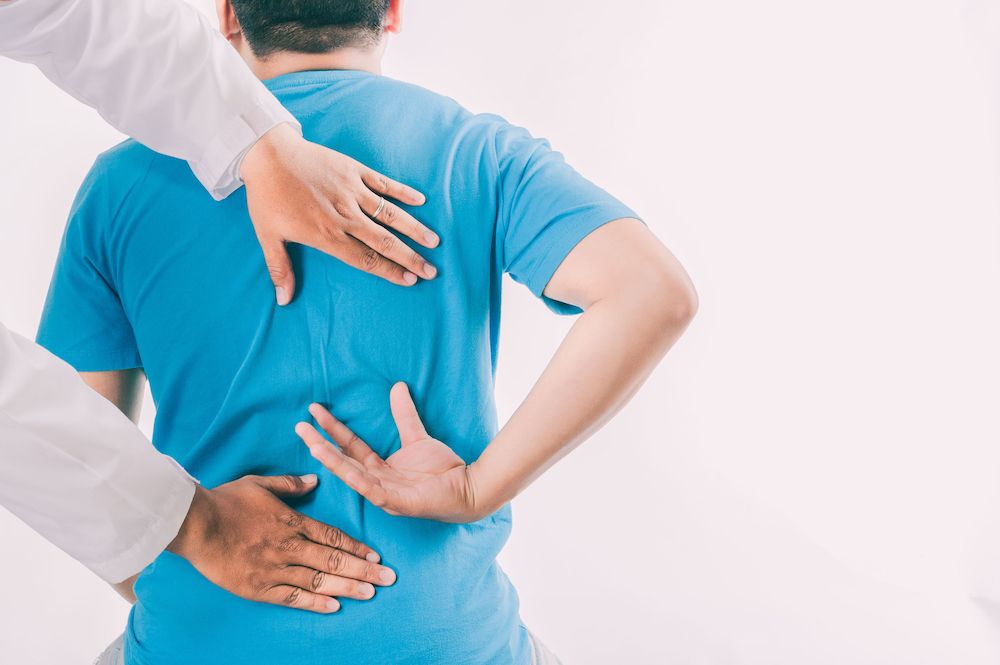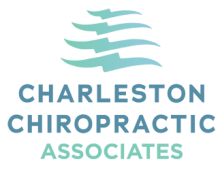Research shows that two percent of adults in the United States experience pain associated with a herniated disc. The weakness and pain of a herniated disc can impact an individual greatly, affecting their quality of life. Before looking for treatment options for herniated disc pain, here is a quick review of what this condition is about.

What Is Herniated Disc Pain?
Between each vertebra in the spine, there is a disc known as the intervertebral disc. These discs provide flexibility and act as a shock distributor and shock absorber. To get a better picture, imagine you are jumping up and down or moving your back sideways. These discs allow the spine to remain intact and functional.
Herniated disc pain is also called ruptured or slipped disc. It occurs when the soft, jelly-like substance found in the center of the intervertebral disc slips out past the exterior part of the disc. This slip causes an individual to experience pain. It may cause numbness or tingling in one arm, leg, or foot, shooting arm pain, neck pain, or back pain.
Numerous factors can cause a herniated disc, including physical injury, being overweight, and having poor posture. Professionals recommend chiropractic care as an alternative to surgery to treat herniated discs.
Chiropractors’ Approach To Treating A Herniated Disc
During the initial appointment, professional chiropractors go through their patients’ medical history. They then perform neurological and orthopedic tests, as well as a physical exam. These tests help a chiropractor check if the patient’s reflexes are intact. If there are signs of muscle wasting or loss of muscle strength, they check the level of sensation along the path of a nerve.
The results from these tests help determine the best treatment option for a patient based on the causes of their herniated disc pain.
To get an accurate diagnosis, a chiropractor may order an MRI or X-ray to look at the patient’s posture. The evaluation process is normally thorough. The chiropractor examines the entire spine to ensure it is functioning well. The type of treatment the chiropractor chooses to address a patient’s symptoms depends on the type of disc injury.
Common treatment plans to treat herniated discs include therapeutic exercises, manual therapy, and spinal manipulation. Not all patients with a herniated disc are good candidates for chiropractic care. Some conditions are severe and require medical attention instead.
Tips To Reduce Risks For A Herniated Disc
Anyone is prone to suffer from herniated disc pain despite their best efforts. However, there are ways you can reduce your risks by:
Rethinking your sleeping position – Poor posture is a major factor causing herniated discs. Good posture does not just apply when you are sitting or standing. Your sleeping posture can also affect the health of your spine. To improve your sleeping posture, you can try sleeping on your side or back, sleeping with a pillow between your legs or under your knees, and sleeping on a firm mattress
Practice safe lifting – When lifting heavy objects, avoid bending; instead, use your legs to prop you up. Use lifting equipment whenever you can or ask for assistance when possible
Exercise regularly – Some exercises help strengthen your core muscles. Exercising is a great way to prevent back pain and reduce the chances of herniated discs
For more on preventing herniated disc pain, contact Charleston Chiropractic Associates at our office in Charleston, South Carolina. You can call (843) 225-4357 to book an appointment today.
QUICK LINKS
Quick Links
HELPFUL ARTICLES
Services
General
Health
Conditions
- Corrective Exercises
- Chiropractic Care for Kids
- Chiropractic Senior Care
- Acupuncture
- Holistic Treatments
- Chiropractic Care for Ear Infections
- Work Related Injuries
- Physiotherapy Treatments
- Therapeutic Adjustments
- Cranial Facial Release
- Spinal & Postural Screenings
- Massage Therapy
- Chiropractic Adjustments
- Chiropractic FAQ’s
- Common Myths About Chiropractic Care
- What to Expect at Your First Chiropractic Visit
- Choosing the Right Chiropractor for You
- Candidates for Chiropractic Care
- Methods of Chiropractic Care
- The Importance of Regular Chiropractic Visits
- Chiropractic Care – Overview
- Benefits of Chiropractic Care
